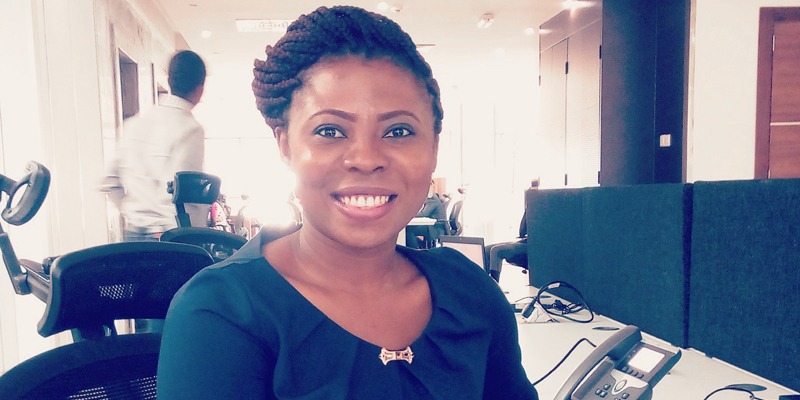Graduate student of the month

Maryanne Chioma Aghalu is a second-year graduate student pursuing a Masters of Employment Relations (MER) at Memorial University of Newfoundland. Maryanne holds a BSc. in business management with a first class from the University of Jos, Nigeria. At Memorial University, she is a recipient of two graduate students’ awards from the School of Graduate Studies (SGS) in recognition for her excellence in academics & leadership in 2017 and 2018 respectively. Maryanne has advanced her professional skills and academic knowledge through the Professional Skills Development Program (PSDP) and the Teaching Skills Enhancement Program (TSEP). She has also made significant contributions in strengthening the St John’s on and off-campus community through active volunteering.
How and why did you decide to attend Memorial for your graduate degree?
After completing my bachelor’s degree, I worked for about four years as an HR consultant in one of the big four companies in Nigeria but nursed the desire to pursue a master’s degree in a related field in Canada. Consequently, I began an internet search for schools within Canada that met three of my search criteria: estimated budget, an international ranking of the university and cost of living in general. Based on these three factors, I found and applied to Memorial University. Also, in the process of my application, I received prompt email responses from the program administrator at the time which was quite encouraging.
What drew you to explore employment relations originally?
Most of my professional work experience was private sector driven but I also had the opportunity to work on two public sector projects. At that point, I noted the different dimensions of employment relationships between employers/government and workers in the unionized and nonunionized work environment. This spurred my interests to understand these forms of employment relationships across dimensions and contexts including factors that influence them.
Can you tell us a bit about your current projects?
This semester, my research paper intends to assess the precursors, risks, and impact of workplace bullying and harassment and how that differs in the private and public sectors in Canada. I am also a research assistant with a team of academic researchers involved in assessing the effectiveness of one of Canada’s public-sector institutions.
A supervisor can be key to the success of any grad student. What does your supervisor (Dr. Amy Warren & Dr. Alan Hall) bring to their role as your advisor and mentor?
Dr. Warren and Dr. Hall have offered great support during the course of my program by advising and also giving academic recommendations where needed. They have both played key roles as mentors towards my academic performance in the MER program.
Are you involved in any organizations on-campus or off? If so, can you explain and detail such involvement?
Yes, I am. I hold volunteer positions on campus as:
- Member of the Academic Unit Planning (AUP)
- Non-Executive board member, Collective Bargaining Committee, Faculty of Business, Graduate Students’ Union (GSU)
- Teaching Union of Memorial University of Newfoundland (TAUMUN)
Within the St John’s community, I volunteer off-campus at the Resource Center for Arts and, the Children’s Wish Office.
What do you like most about being a graduate student at Memorial?
Prior to coming to Memorial, I lived in Lagos- the most populated city in Nigeria. I was used to the hustle and bustle of the city life but in Newfoundland, I have learnt how to adapt to living a life of ease. Everywhere is accessible with no traffic. Unlike many, I love the weather because it is different from the climate in my home country and other provinces in Canada I have visited. The hospitality and warmth of Newfoundlanders is overwhelmingly good, which evens out the windy and cold atmosphere.
At Memorial, I love the diversity of the students and the inclusiveness by the university through the provision of the Internationalisation office (IO), which in my opinion is an asset for the university and a medium to promote the university’s visibility globally. It is equally a great resource for many international graduate students all through their academic journey and life after graduation.
What do you hope to do after completing your graduate degree?
Post graduation, I aspire to work in Canada’s banking sector or one of the big oil companies as an HR consultant and business advisor.